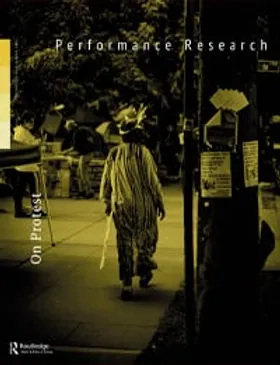Iron Man review
Hailed as a subversive action flick for its portrayal of weapons industry corruption, Iron Man is a disappointing techno-imperialist fantasy, but its special effects will keep die-hard gadget fetishists on the edge of their seats.
Based on Marvel’s successful Cold War-era comic book, Iron Man tells the story of American überman Tony Stark (Robert Downey Jr.), an arrogant child prodigy who built his first engine at the age of six and would go on to take over his father’s weapons manufacturing outfit not long after. In between feats of engineering, he spends his time cajoling women into bed with him – even a sharp-tongued progressive reporter for Vanity Fair cannot resist the charm behind comments like, “I’d be willing to lose a few hours sleep with you”. He abandons her to his projects the next morning, and she carries the grudge until the end of the film.
Like America
Stark travels to Afghanistan to show off his latest weapon to the boys in the field: the Jericho Afghanistan
He finds himself captured by a terrorist organization called The Ten Rings. Though they take their name from the weapon of choice of Orientalist villain The Mandarin (apparently to be Iron Man’s foe in the 2009 sequel), this group turns out to be based faithfully on the principles of CNN-defined terrorism. Genghis Khan-inspired foreign jihadis, they have come to Afghanistan
In the bomb attack, Stark is severely injured, with a piece of shrapnel coming dangerously close to entering his heart. Fortunately, he is imprisoned alongside the resourceful scientist Dr. Yinsen (Shaun Toub), who has created a shield for his heart using the electromagnet from a car battery. Meanwhile, the terrorists are anxious for Stark to make them a version of his Jericho
Equipped with his new cyber-heart, Stark returns to America Afghanistan
Throughout the film, American technical wizardry is contrasted with Afghan primitivism. The Good Muslims secretly aid Iron Man or wait in hope and awe for him to save them from evil. The Bad Muslims are jealous. Since they lack American smarts, the only way for them to keep up is to steal the technology using those tried and true methods of Oriental savagery: kidnapping, torture and blackmail.
As a modern American übermench, Tony Stark is an archetype of a successful American male. Witty, self-aggrandizing, sexually potent, brimming with brains and money, Stark also has a heart. He represents an America
Unsurprisingly for a comic book, Iron Man is an unabashedly male fantasy. Gwyneth Paltrow plays Pepper, his beautiful assistant whose job it is to “do just about anything Mr. Stark needs me to” (of course even she has a secret, unfulfilled crush on him). Other jobs that women have in the film include worrying about Mr. Stark, sleeping with Mr. Stark and, if they feel used by him, asking spiteful pointed questions during press conferences.
There is no doubt that the special effects and fast-paced action make for an extremely watchable film. Stellar performances by all the main actors, especially Jeff Bridges as bad-guy-on-the-inside Obadiah Stane, help to make this production one of the best made comic book series so far. And Downey Jr.’s deadpan expression and ironic wit makes his character human in a way that, for example, Christian Bale’s all-too-serious Batman wasn’t.
The original Iron Man was part of a wave of 1960s Cold War propaganda comics. The original villain in this film was supposed to be the Mandarin, a crude metaphor for Maoist communism, but director John Favreau felt, rightly, that this would be out of date. But in updating the comic, Favreau has successfully updated his propaganda as well, skilfully bringing to the screen the ideology of military humanitarianism that justifies the War on Terror.
Montreal
Serai Volume 21: Issue 2 (July 2008);
reprinted in Monthly Review Zine
August 2008.



This is great info to know.
ReplyDelete